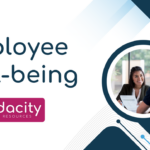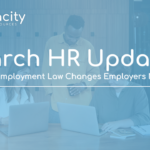Real World Tips for Employers
February 2019
With Valentine’s Day just around the corner, this is a perfect time for employers to reflect on how romance and relationships impact the workplace.
Workplace Romance: What’s The Big Deal?
Savvy employers know that romance and relationships impact the workplace in a number of ways. One of the most disconcerting is that such activity may expose an employer to liability. If a consensual romantic relationship ends badly, it may create backlash that impacts the workplace… in allegations of harassment or other wrong doing. Workplace romance also has the potential to create:
- Drama,
- Gossip,
- Distraction,
- Concerns of favoritism, and/or
- Unfair treatment.
Workplace Romance: Recognize Reality
Some employers attempt to prohibit workplace romance altogether. However, data shows that this approach may not be feasible or even practical. In a study by CareerBuilder, 36% of workers reported dating a co-worker. In addition 41% of workers choose to keep their relationship a secret at work.
Some employers take the polar opposite approach and ignore the issue altogether. Many HR pros argue the better approach is to acknowledge reality; create solid policies and procedures around workplace romance, relationships and dating.
Workplace Romance: Effective Policies
Read through your non-harassment policy. Is it logical and easy to understand? The policy should contain clear language that defines harassment and outlines prohibited conduct. It should require reporting of concerns and direct who that report should go to. The policy should always provide two reporting channels, in case the first reporting option is the subject of the concern. The policy should prohibit retaliation against anyone raising a good faith concern or participating in an inquiry or investigation.
Workplace Romance: Powerful Training
The best of policies is meaningless without powerful and impactful training. Employers must be ready to engage beyond mere compliance and embrace a robust training protocol that will:
- Educate workers,
- Promote constructive dialogue, and
- Eradicate harassment.
Supervisors must have the training they need to skillfully navigate complex situations and know when to contact HR (in a larger organization) or the individual(s) responsible for the HR function (in a smaller organization).
Workplace Romance: Take Complaints Seriously
With the #MeToo, #NoMore and other grass roots movements, the risk of litigation and high-profile exposure has increased exponentially. From Hollywood to Washington D.C. to New York, employers will be expected to take steps beyond policy implementation to support a culture that will not tolerate harassment.
The impact of harassment is hard to quantify and the stakes are high. It includes direct costs to employers such as legal fees or settlement amounts. In fact, according to stats released by the EEOC (the Equal Employment Opportunity Commission), they obtained $46.3 million in monetary benefits for victims of sexual harassment in 2017 alone. The toll harassment takes on the workplace also includes indirect costs such as:
- low morale,
- decreased productivity,
- increased absenteeism,
- high turnover, and
- a damaged reputation.
Employers must take complaints seriously, have a protocol in place to swiftly and accurately investigate concerns and take appropriate action. Don’t wait until you receive a complaint and have to scramble to put together a plan. Problem solve now while you have the space and clarity to think through an effective protocol. Make sure that protocol follows your policy and includes trained professionals with the skill and expertise to conduct a fair and impartial inquiry (whether that is in-house or hiring an external expert).
Workplace Romance: Consider Other Policies
Incorporate other policies that make sense for your organization. Many employers have a strict prohibition against anyone in a supervisory role or position of power from being in a relationship with a subordinate, or with an external consultant or vendor. The power differential of dating a subordinate could create a “Quid Pro Quo” dynamic. Quid Pro Quo is a form of sexual harassment that means “this for that.” It refers to situations in which:
- Submission to sexually harassing conduct is made a term or condition of employment, or
- Submission to, or rejection of sexually harassing conduct is used as the basis for decisions affecting the individual who is the target of such conduct.
An example would be exchanging sexual favors for a promotion, a raise or a highly sought after assignment (or the opposite of that… refusing to give a promotion, raise or assignment if the individual does not agree to the “exchange”). If a supervisor is in a position to make a final decision about a promotion, raise or assignment… and is also in a relationship with the individual… problems arise. Coworkers may resent the decision and identify it as favoritism, creating drama and conflict. It also opens the door to the individual making a sexual harassment allegation that the relationship was coerced rather than consensual.
The reality for employers is to pay close attention and have the appropriate policies and protocols in place… as 22% of workers have dated someone who was their boss at the time and 30% have dated someone who was at a higher level in the organization (CareerBuilder survey).
Workplace Romance: Love Contracts
To prepare for workplace romance, some employers are utilizing consensual relationship contracts (i.e. “love contracts”), wherein coworkers disclose a relationship to their employer. Proponents of “love contracts” argue they have the potential to reduce litigation risk because it gives the employer a chance to discuss boundaries and be clear about the non-harassment policy. It also puts the employer on notice of the relationship to navigate areas that could be problematic and show favoritism or conflict of interest.
Other experts argue “love contracts” are a drawback, in that it may feel like an invasion of privacy, offensive to otherwise high performing employees and puts the employer in the awkward position of being the “relationship police.” Others argue it is a waste of time in that it may not protect against the more problematic relationships. A SHRM (Society for Human Resource Management) article points out that “[r]omantic relationships most likely to cause problems for organizations are those in which participants will be the least likely to come forward to sign consensual relationship contract, regardless of policy. For example, married participants or participants in sensitive jobs may choose to disregard policy because of the negative repercussions of revealing the relationship.”
Considering that almost a quarter of workers (24%) had an affair with a colleague where one person involved was married at the time and 41% choose to keep their relationship a secret at work, employers must be aware of the complexities involved and knowledgeable about their options (CareerBuilder survey).
Looking for more HR insight? Check out our blog post on incivility in the workplace.
About the Author
HR thought leader, Stacy Johnston, provides innovative HR solutions with a mission to support organizations in understanding and engaging their biggest competitive advantage… their employees. Johnston writes and speaks about contemporary HR topics. She is a licensed attorney and holds the SHRM-CP and PHR credentials.
About Audacity LLC: HR Consulting
Audacity LLC’s passion is HR. We help organizations build peace of mind, dial in productivity and enhance employee engagement by creating agile HR solutions that align with mission and core values. Comprehensive solutions include tips and tools to effectively recruit, hire, onboard and retain an engaged and skilled workforce. They help organizations build strong, cohesive and inclusive teams and develop mindful leaders at all levels. Bold and innovative Human Resource solutions save valuable time and money.
“Let US focus on HR while YOU focus on what you do best ~ building your organization and serving your mission! From HR policies, employee handbooks and training to recruiting, hiring, onboarding and performance management. Let our expertise be your guide!”
Ask about our half-day, full-day and multi-day training options. Reach out for a free and confidential consultation at info@audacityhr.com.







